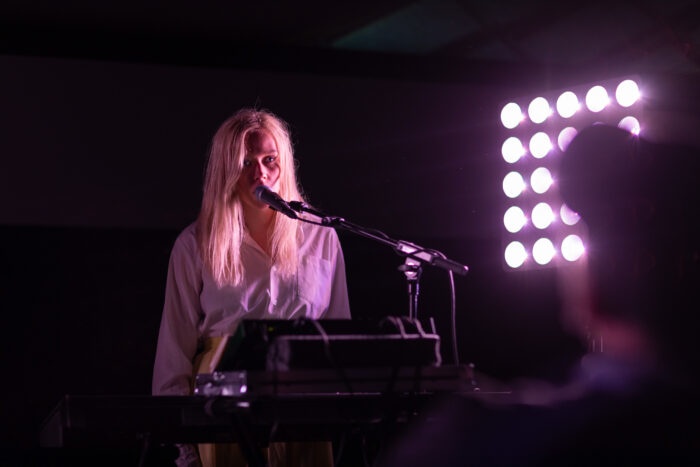The morning discussion with director Emmanuel Mouret who has been relatively unknown in Finland until now but has a robust film career in France was a profound master class on the essentials of film making, the awkwardness of being human, and the value of putting in effort. These are also themes in Mouret’s masterful depictions of the intricacies of love life of which The Art of Love and Venus and Fleur were screened in Lapinsuu and presented by the director.
The morning was full of feeling: in the Big Tent Jerzy Skolimowsk’s visually impressive EO followed the life of a donkey and in Cinema Kitinen Kim Hopkins’s A Bunch of Amateurs, first screened on the opening day, documented the activities of a film-making club. The audience leaving the former venue was somewhat tearful whereas people left the latter one smiling affectionately.
The Grump: In Search of an Escort screened later at the School was already the second film by Mika Kaurismäki at the festival. Kaurismäki who is one of the founders of the festival presented his film and answered questions from the audience after it. The film is partly set in Germany and the choice of location felt natural to the director, who has been filming abroad before for example in Germany, US, and Brazil. The film discusses family and repairing relationships in a fresh and deep way that lifts it above traditional popular comedy. The Grump interpreted by Santeri Kinnunen managed to make the audience both laugh and cry and received enthusiastic applause at the end.
In the afternoon, Helmi Kajaste who is working on her dissertation on architecture presented Jacques Tati’s architecturally interesting comedy classic Mon oncle at the School. The film juxtaposes two worlds: Monsieur Hulot’s childhood village feel and modern environment. According to Kajaste, the building and demolition seen in the film reflects the building and modernisation of the landscape in post-war France. Even if Tati’s point of view on modernism is critical in the film, Kajaste underlined that the director does not mean to criticise modern architecture but rather showing off with flats and other possessions.
Olaf Möller’s master class series on Croatian cinema of the 60s culminated with Marijan Vajda’s Seki’s Rolling, Watch Out dubbed the worst film in Croatian history, a comedy about the challenges of film making peppered with schlager and starring the great footballer of the time Dragoslav “Šeki” Šekularac which caused surprise and mirth in the audience gathered at the School. In the evening, laughter and applause accompanied Arturo Ripstein’s entertaining and insightful small-town story The Black Widow. Even though the director could not participate in the Festival, also his less known film gathered a numerous audience at the Big Tent.
At the School, curator, and a co-director of Bologna’s Il Cinema Ritrovato film festival Ehsan Khoshbakht presented the plain but warm film Far from Home by the true lone wolf of Iranian cinema Sohrab Shahid Saless. The audience sympathised intensely with Saless’s depiction of the painful emptiness, but also daily comradery felt by the Turkish guest workers living in Berlin. Meanwhile in the Big Tent the audience listened to the silent film concert where Ingeborg Holm by Viktor Sjöström was accompanied by the composers of the concert’s score Matti Bye and Lau Nau together with Leo Svensson. The soft and delicate accompaniment led the audience to a dreamlike atmosphere.
The late-night and early morning screenings still attracted enthusiastic audiences. The Big Tent filled up with the sold-out film concert by Maustetytöt. Although many in the audience were already very familiar with The Match Factory Girl by Aki Kaurismäki, the film got a whole new life accompanied by the music of Maustetytöt. Later David Lynch’s Lost Highway was screened at Lapinsuu, Anna Paavilainen’s Kikka! in the Big Tent and Valentina Maurel’s I Have Electric Dreams at the School and Junji Sakamoto’s Okiku and the World at Cinema Kitinen.
Photo: Susanna Pesonen.
